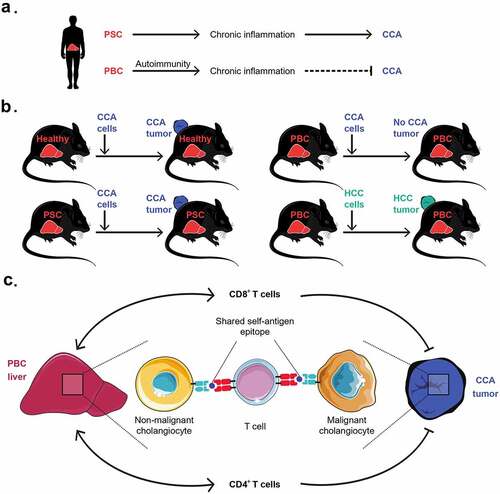Figures & data
Figure 1. Epidemiological and immunological links between cholangitis and cholangiocarcinoma. (A) Patients with primary sclerosing cholangitis (PSC) often develop cholangiocarcinoma (CAA), while patients with primary biliary cholangitis (PBC) usually do not develop CAA. (B) In preclinical models, PBC, but not PSC, prevents or delays the development of CCA. This protective effect mediated by PBC is specific to CCA as it does not prevent the outgrowth of other cancers such as hepatocellular carcinoma (HCC). (C) In mice, some CD4+ and CD8+ T cell clonotypes with immune effector functions were infiltrating and expanding in both liver and CCA tissues upon PBC. These T cell clones responsible for concomitant detrimental and beneficial autoimmunity are likely to recognize non-mutated autoantigens shared between nonmalignant and malignant cholangiocytes

